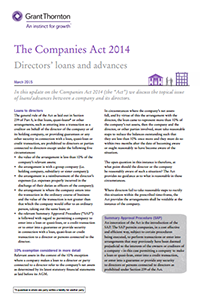-
Aviation Advisory
Our dedicated Aviation Advisory team bring best-in-class expertise across modelling, lease management, financial accounting and transaction execution as well as technical services completed by certified engineers.
-
Consulting
Our Consulting team guarantees quick turnarounds, lower partner-to-staff ratio than most and superior results delivered on a range of services.
-
Business Risk Services
Our Business Risk Services team deliver practical and pragmatic solutions that support clients in growing and protecting the inherent value of their businesses.
-
Deal Advisory
Our experienced Deal Advisory team has provided a range of transaction, valuation, deal advisory and restructuring services to clients for the past two decades.
-
Forensic Accounting
Our Forensic and Investigation Services team have targeted solutions to solve difficult challenges - making the difference between finding the truth or being left in the dark.
-
Financial Accounting and Advisory
Our FAAS team designs and implements creative solutions for organisations expanding into new markets or undertaking functional financial transformations.
-
Restructuring
Grant Thornton is Ireland’s leading provider of insolvency and corporate recovery solutions.
-
Risk Advisory
Our Risk Advisory team delivers innovative solutions and strategic insights for the Financial Services sector, addressing disruptive forces, regulatory changes, and emerging trends to enhance risk management and foster competitive advantage.
-
Sustainability Advisory
Our Sustainability Advisory team works with clients to accelerate their sustainability journey through innovative and pragmatic solutions.

-
 Asset management Asset management of the futureIn today’s global asset management landscape, there is an almost constant onslaught of change and complexity. To combat such complex change, asset managers need a consolidated approach. Read our publication and find out more about what you can achieve by choosing to work with us.
Asset management Asset management of the futureIn today’s global asset management landscape, there is an almost constant onslaught of change and complexity. To combat such complex change, asset managers need a consolidated approach. Read our publication and find out more about what you can achieve by choosing to work with us. -
 Internal Audit Maintaining Compliance with New EU Pension Directive IORP IIOn 28 April 2021, the Irish Government transposed IORP II (Institution for Occupational Retirement Provision), an EU directive on the activities and supervision of pension schemes, into law.
Internal Audit Maintaining Compliance with New EU Pension Directive IORP IIOn 28 April 2021, the Irish Government transposed IORP II (Institution for Occupational Retirement Provision), an EU directive on the activities and supervision of pension schemes, into law. -
 Risk, Compliance and Professional Standards FRED 82 – Periodic Updates to FRS 100 – 105The concept of a new suite of standards for the UK and Ireland, aligning with international financial reporting standards, was first conceived in 2002
Risk, Compliance and Professional Standards FRED 82 – Periodic Updates to FRS 100 – 105The concept of a new suite of standards for the UK and Ireland, aligning with international financial reporting standards, was first conceived in 2002 -
 Audit and Assurance Auditor transition: how to achieve a smooth changeoverAppointing new auditors may seem like a daunting task that will be disruptive to your business and a drain on the finance function. Nevertheless, there are a multitude of reasons to consider a change, including simply seeking a ‘fresh look’ at the business.
Audit and Assurance Auditor transition: how to achieve a smooth changeoverAppointing new auditors may seem like a daunting task that will be disruptive to your business and a drain on the finance function. Nevertheless, there are a multitude of reasons to consider a change, including simply seeking a ‘fresh look’ at the business.
-
Corporate Tax
Our Corporate Tax team is made up of more than 40 highly experienced senior partners and directors who work directly with a wide range of domestic and international clients; covering Corporation Tax, Company Secretarial, Employer Solutions, Global Mobility and Tax Incentives.
-
Financial Services Tax
The Grant Thornton team is made up of experts who are fully up to date in terms of changing and evolving tax legislation. This is combined with industry expertise and an in-depth knowledge of the evolving financial services regulatory landscape.
-
International Tax
We develop close relationships with clients in order to gain a deep understanding of their businesses to ensure they make the right operational decisions. The wrong decision on how a company sells into a new market or establishes a new subsidiary can have major tax implications.
-
Private Client
Grant Thornton’s Private Client Services team can advise you on all areas of financial, pension, investment, succession and inheritance planning. We understand that each individual’s circumstances are different to the next and we tailor our services to suit your specific needs.
-
VAT
Grant Thornton’s team of indirect tax specialists helps a range of clients across a variety of sectors including pharmaceuticals, financial services, construction and property and food to navigate these complexities.

In this update on the Companies Act 2014 (the “Act”) we discuss the topical issue of loans/advances between a company and its directors.
The general rule of the Act as laid out in Section 239 of Part 5, is that loans, quasi-loans* or other arrangements, such as entering into a transaction as a creditor on behalf of the director of the company or of its holding company, or providing guarantees or any other security in connection with a loan, quasi-loan or credit transaction, are prohibited to directors or parties connected to directors except under the following five circumstances:
- the value of the arrangement is less than 10% of the company’s relevant assets;
- the arrangement is with a group company (i.e. holding company, subsidiary or sister company);
- the arrangement is a reimbursement of the director’s expenses (i.e. expenses properly incurred in the discharge of their duties as officers of the company);
- the arrangement is where the company enters into the transaction in the ordinary course of business and the value of the transaction is not greater than that which the company would offer to an ordinary person, taking out the same loan; or
- the relevant Summary Approval Procedure (“SAP”) is followed with regard to permitting a company to enter into a loan or quasi-loan, or a credit transaction or to enter into a guarantee or provide security in connection with a loan, quasi-loan or credit transaction to a director or persons connected to the director.
Summary Approval Procedure (SAP)
An innovation of the Act is the introduction of the SAP. The SAP permits companies, in a cost effective and efficient way, subject to certain procedures being executed, to perform transactions or enter into arrangements that may previously have been deemed prejudicial to the interests of the owners or creditors of a company - in this case permitting a company to make a loan or quasi-loan, enter into a credit transaction, or enter into a guarantee or provide any security to directors or persons connected to directors as prohibited under Section 239 of the Act.
The Companies Act 2014 sets out very specific rules regarding loans and advances to and from directors and the importance of documenting such transactions. Transactions with directors of a company must be given due consideration prior to entering the transaction to ensure that the requirements of the Act are met. Inadvertent breaches are commonplace and, under the new Act, may have greater implications for directors including unlimited liability for the company’s debts and liabilities.
The introduction of unlimited liability for directors in certain circumstances greatly increases directors’ accountability and directors should be made aware of the implications of this change prior to using the SAP to validate a prohibited activity.










